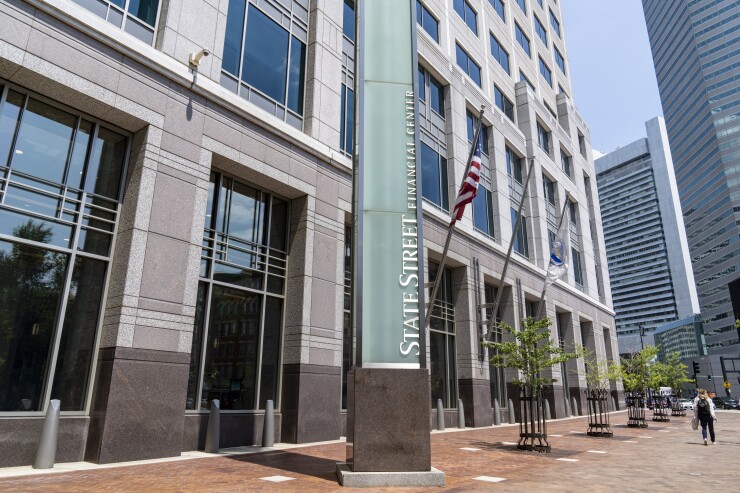
State Street Corp. in Boston has picked three more minority banks to receive a portion of the $100 million of deposits it plans to place this year at some of the nation's minority depository institutions.
Carver State Bank in Savannah, Georgia; Citizens Trust Bank in Atlanta; and Ponce Bank in New York City will each receive an undisclosed amount of deposits as part of State Street's program to provide low-cost, stable deposits to MDIs and community development financial institutions. The trio joins Optus Bank in Columbia, South Carolina, and M&F Bank in Durham, North Carolina,
One of the world's largest custody banks, State Street is trying to place all $100 million of its pledged deposits this year, said
"These are not short-term deposits," Clark, who is part of the committee in charge of State Street's deposits program, said in an interview. "We anticipate letting these deposits sit in these institutions, so that MDIs and CDFIs can go about making loans in the communities they serve."
State Street is
Both Citi and BofA are founding members of the Economic Opportunity Coalition, a group of large corporations and foundations — including eight large and regional banks — that's working to secure $3 billion of deposits for MDIs and CDFIs. The coalition, which was announced in 2022, is part of the Biden administration's efforts to align public- and private-sector investments to address economic inequality in communities of color and other underserved communities.
The Economic Opportunity Coalition's
The deposits are meant to help historically under-capitalized minority banks leverage
In State Street's press release announcing the placement of the deposits, Robert James II, president and CEO of Carver State Bank, said the commitment "will have a meaningful long-term impact in the underserved communities" where the Black-owned bank operates.
At Citizens Trust, another Black-owned bank, State Street's deposits will help provide capital for small businesses, support homeownership and address financial disparities, President and CEO Cynthia Day said in the release.
At Ponce Bank, where the majority of the board is Hispanic American, President and CEO Carlos Naudon said: "The benefit in funding from State Street will allow Ponce Bank to funnel more resources to its target market in the form of lending for much-needed moderate-income housing."
"This is a way for State Street to have an impact on the community," Naudon said in an email, "as well as a prime opportunity for us to serve our communities with additional affordable housing."
After being undercapitalized for decades, some minority-led banks finally got large capital infusions in the wake of George Floyd's murder. But higher interest rates have made it harder for them to gather the deposits they need to boost lending substantially.
There is some skepticism about how impactful such deposits are. William Michael Cunningham, an economist and founder of Creative Investment Research who has been tracking impact investments for three decades, said that some minority banks wind up using the funds for purposes other than making loans within the communities where they operate.
Those uses include hiring more staff, covering salaries and paying for other day-to-day operational costs, he said.
Cunningham has suggested to minority banks that they should use the deposits to ramp up their small-business lending or to make energy-efficient mortgage loans in underserved communities. He has also called on the Federal Reserve to require banks to report how they are using the funds.
Such deposits "are helpful," Cunningham said. "But they are not as helpful as they should be."
State Street did not say how much interest it will collect from placing deposits at minority banks. Clark said the effort is one outcome of the company's 2021 civil rights audit, which was conducted by an outside party and focused on whether State Street's business policies, practices and products and services were advancing civil rights for protected classes.
"I look at this program more as a commitment that State Street is making from a values perspective, not necessarily for financial gain," Clark said. "We know that placing our excess reserves [at minority banks] can really make a significant impact in these communities."






